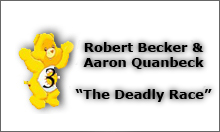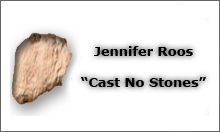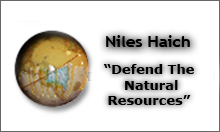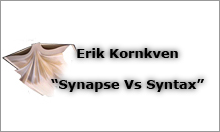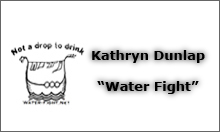Assignment Context
In the fall of 2006, I worked with an undergraduate English major, Aaron Anfinson, as he completed a self-directed, open-ended capstone project. Through discussion and a little bit of persuasion on my part, we settled on Aaron trying out a MEmorial; he read parts of Ulmer's text (2005) and worked, largely independently, towards a MEmorial for Afghanistan (2006). His project inspired me to try a MEmorial for the Lost Boys of Sudan* (2007) as a creative / research project that extended my interest in working with this refugee population. We both drew on and emphasized different elements of Ulmer's experimental genre, and yet we followed through on only a handful of Ulmer's suggestions and prompts. Our experiences and products convinced me that this genre needs further experimentation and development because I see in the MEmorial and its processes the potential to engage students, teachers, researchers and scholars in some important work not always addressed in other kinds of multimodal assignments and research projects. A MEmorial has the potential to engage its creator in significant social / political problems, but address those problems from an arts or humanities perspective; it is a genre of invention and design, as Ulmer's genres typically are, so it partakes in the discipline's broader transition from analysis to design; a MEmorial has the potential to help (re)claim the web as a site of public discourse, often including within the website or the peripheral an opportunity for participation; a MEmorial has the potential to explore electracy, not simply as a set of skills or tools, but as a way of thinking and communicating that might use the tools of the society of spectacle to cut through the distractions of our contemporary cultural mediascape.
To test this potential further, I assigned Ulmer's Electronic Monuments and the genre of MEmorial in a graduate seminar entitled "War and Peace in the Global Village: Rhetorical Acts Post 9/11." The MEmorial exploration and development was the second part of the course. We approached the problem through the question: is this genre, this kind of project, an appropriate, effective, and/or valuable rhetorical act post 9/11? The first half of the course had addressed the specific theme of "war and peace in the global village," and I had asked students to compose "anti-essays" in the style of McLuhan and Fiore's (1967) "essai concrete" or "anti-essay," War and Peace in the Global Village, so I presented the MEmorial as another kind of post-critical composition that does not analyze how others engage in online memorialization, but instead asks students to engage in electronic monumentaity itself. I asked students to write with, rather than about, materials related to their chosen problems.
The assignment sheet itself was loose and open-ended. I wanted students to fully explore and test the genre, to discover sticking points and problems with the genre, as well as energizing, insightful moments. I supported the students primarily through process:
- I shared pre-reading notes for each section of Electronic Monuments before hand. Reading notes.
- We spent time brainstorming and workshopping elements of the MEmorial every week. Schedule.
- I created (and then we co-created) support pages like "Keywords from Electronic Monuments." Keywords.
- We all responded to each other's process notes and posts on our Content Management site's Ulmer forum. Memorials and all things Ulmer .
My goal for the assignment and course was not to convince students of the value of a MEmorial as assignment or valid scholarly genre, but simply to test it, to see if it would work (or not) for graduate students, as scholars and teachers-in-training. My sample size is small, but these students came from a variety of backgrounds in education, theory, and technological literacies.
Aaron Quanbeck and Bob Becker were doctoral students from NDSU's Communication department. Neither were familiar with Ulmer. Aaron came from a journalism and production background, which landed him in the techie role for their project; Bob came from a speech and rhetoric background, and landed him in the theory / research role. They had both been advised to try my course in order to get a different disciplinary perspective on rhetoric.
Jennifer Roos was a part time student in the English department's graduate program. She already had a Master's in Liberal Arts and was comfortable with theory, although not familiar with Ulmer. She was interested in the topic, War and Peace in the Global Village, because of her unique family situation; she claimed to have basic technology skills.
Kathryn Dunlap had composed a Mystory in an undergraduate course, and was the only student in the class familiar with Ulmer's work. She was already done with her course work, but decided to take this class because it related closely to her interests in technology, rhetoric, and social issues. She was comfortable with both the theory and the practice of MEmorials.
Erik Kornkven was a second year MA student with very broad interests: creative writing, literature, ELL instruction. He had done a handful of new media or multimodal assignments as an undergraduate, but he generally resisted theoretical texts. He had not worked with Ulmer before.
Landon Kafka was also a second year MA student who had earned an undergraduate degree in history and brought a sharply politicized point of view to the class. He too had experience with new media and multimodal assignments, but was not familiar with Ulmer or MEmorialization.
Niles Haich was a first-year MA student new to NDSU. He came to the program interested primarily in creative writing and did not have extensive experience with theory or new media. He was not familiar with Ulmer.

